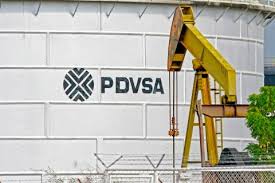In recent months, Venezuela’s state-owned oil giant, Petróleos de Venezuela S.A. (PDVSA), has faced a significant upheaval as dozens of employees have been forced to resign or leave the company due to their political views. This development has not only highlighted the political tensions within Venezuela but also underscored the broader impact of political and economic instability on the country’s vital oil sector.
Table of Contents
The Political Climate at PDVSA
Venezuela’s PDVSA, once a powerful symbol of the nation’s economic strength, has been at the center of political and economic turbulence for years. Under President Hugo Chávez and his successor, Nicolás Maduro, the company has been deeply intertwined with the country’s political landscape. The oil sector, which accounts for a substantial portion of Venezuela’s GDP and government revenue, has become a battleground for political loyalties and ideological alignments.

In recent years, the Maduro government has faced significant opposition both domestically and internationally. Political dissidents and critics of the regime have been targeted through various means, including forced resignations, imprisonments, and other forms of persecution. The oil industry, as a major government asset, has not been immune to these pressures.
Forced Resignations and Political Purges
Reports from within indicate that a wave of forced resignations has swept through the company, affecting employees from various levels and departments. Workers claim that many of these departures are not related to performance issues or economic necessity but are instead driven by political motives. The company’s leadership, allegedly under directives from the government, has reportedly pressured employees to leave due to their political views or affiliations.
The forced resignations come amid a backdrop of ongoing political instability in Venezuela. The country has been grappling with hyperinflation, severe shortages of basic goods, and a deteriorating standard of living. In this context, struggles have been exacerbated by the political environment, as the government seeks to consolidate control over the company and its resources.
Impact on PDVSA and the Oil Sector
The forced resignations at have had several significant impacts on both the company and the broader oil sector:
- Operational Challenges: The departure of experienced and skilled workers has created operational challenges for PDVSA. The company has faced difficulties in maintaining production levels and ensuring the efficient management of its oil fields. The loss of expertise and institutional knowledge has compounded these challenges, affecting the company’s ability to operate effectively.
- Reputational Damage: The political purges and forced resignations have damaged PDVSA’s reputation both domestically and internationally. The perception of political interference in the company’s operations has undermined confidence among investors, partners, and stakeholders. This reputational damage could have long-term implications for the company’s ability to attract investment and maintain partnerships.
- Economic Consequences: As Venezuela’s primary source of revenue, performance is critical to the country’s economic stability. The disruption caused by the forced resignations has contributed to a decline in oil production and exports, exacerbating Venezuela’s economic woes. The reduction in revenue from oil exports has further strained the country’s financial situation, impacting government budgets and social programs.
- Employee Morale and Productivity: The political climate within PDVSA has also affected employee morale and productivity. The atmosphere of fear and uncertainty has created a challenging work environment, with many employees feeling pressured to align with the government’s political stance or face the risk of losing their jobs. This environment has likely impacted overall productivity and job satisfaction within the company.
Reactions from Affected Workers and Opposition Figures
The forced resignations at have drawn reactions from both affected workers and opposition figures. Many employees have expressed frustration and anger over the political motivations behind their forced departures. Workers have reported being coerced into resigning or being dismissed due to their political beliefs or affiliations with opposition groups.
Opposition leaders and human rights organizations have condemned the actions of the Venezuelan government and PDVSA’s leadership. They argue that the purges represent a broader pattern of political repression and an attempt to stifle dissent within key institutions. The opposition has called for international attention and intervention to address the abuses and support the rights of workers facing political persecution.
Broader Implications for Venezuela
The situation at reflects broader trends in Venezuela, where political and economic crises have intertwined to create a complex and volatile environment. The forced resignations and political purges within the oil sector are indicative of the wider struggles facing the country.
- Political Repression: The targeting of PDVSA employees based on their political views is part of a larger pattern of political repression in Venezuela. The government’s actions underscore the extent to which political loyalties are being used to control key institutions and suppress dissent.
- Economic Decline: The turmoil withi exacerbates Venezuela’s economic decline. As the country’s primary revenue source, the oil sector’s struggles have a cascading effect on the broader economy. The loss of production and revenue from has worsened the economic crisis and contributed to the country’s deepening financial problems.
- International Relations: The situation at has implications for Venezuela’s international relations. The perception of political interference and repression may impact the country’s interactions with foreign governments and international organizations. It could influence diplomatic efforts and economic sanctions, further isolating Venezuela on the global stage.
- Humanitarian Concerns: The political purges and economic instability have significant humanitarian implications. The impact on workers and their families, coupled with the broader economic crisis, contributes to the overall humanitarian situation in Venezuela. The international community’s response to these issues will be crucial in addressing the country’s pressing needs.
Moving Forward
As Venezuela continues to navigate its political and economic challenges, the situation at PDVSA remains a critical focal point. The forced resignations and political purges highlight the intersection of politics and industry in a country grappling with deep-seated problems. The ongoing crisis within PDVSA reflects broader issues facing Venezuela and underscores the need for comprehensive.







